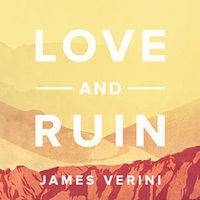Will Mackin is a U.S. Navy veteran who served with a SEAL team in Iraq and Afghanistan. His debut book is Bring Out the Dog.
“I wanted to write nonfiction and I started writing nonfiction. And the reason I did that was — first of all, I felt all the people did all the hard work, and who was I to take liberties? And the second reason was, I just felt an obligation to the men and women who I served with not to misrepresent them, or what they’d been through, or what it had meant to them, or how they felt about it. I kept piling these requirements on to myself: Well, if I present this particular event in this light, this guy’s going to get his feelings hurt. Or, I don’t know how this guy’s family will feel about me talking about this. And it became debilitating, all those restrictions, I kind of kept layering on myself. I was talking to George Saunders at one point about this, and I was like, ‘I don’t know if this book is going to happen. I’m just stuck’ And he pointed out, ‘You’re putting all these restrictions on yourself because it puts this perfect book off in the never-to-reach future. If you remove those and start fictionalizing things and getting at it a different way, maybe it’ll work for you.’”
Thanks to MailChimp and Breach for sponsoring this week's episode.























